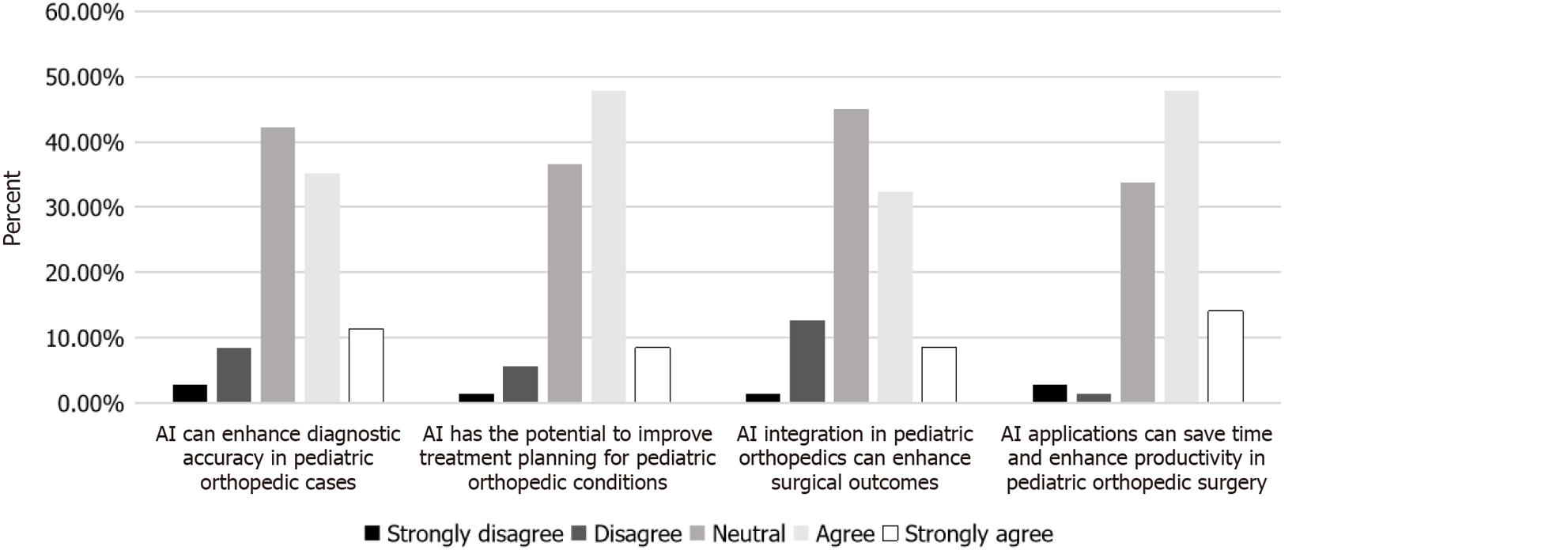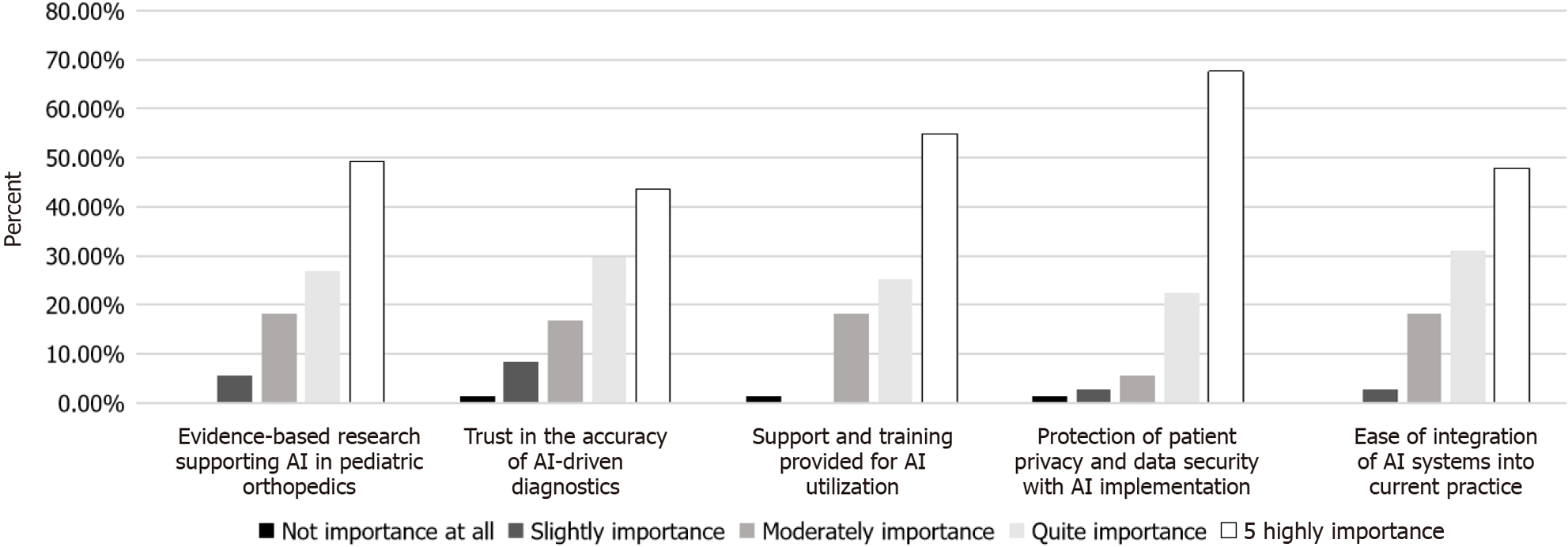Copyright
©The Author(s) 2024.
World J Orthop. Nov 18, 2024; 15(11): 1023-1035
Published online Nov 18, 2024. doi: 10.5312/wjo.v15.i11.1023
Published online Nov 18, 2024. doi: 10.5312/wjo.v15.i11.1023
Figure 1 Perceptions towards artificial intelligence.
Nearly 50% of respondents agree or strongly agree that artificial intelligence (AI) can enhance diagnostic accuracy in pediatric orthopedics, while over 56% believe it can improve treatment planning. Additionally, 41% agree that AI integration can enhance surgical outcomes. The most positively rated aspect was AI’s ability to save time and boost productivity, with 62% in agreement. AI: Artificial intelligence.
Figure 2 Factors affecting decision-making.
Almost half of the respondents rated evidence-based research on artificial intelligence (AI) in pediatric orthopedics as highly important, with 27% considering it quite important. Trust in the accuracy of AI-driven diagnostics was highly important for 44% and quite important for 30%. Over half of the respondents found support and training for AI utilization highly important, with 25% rating it as quite important. The top priority was patient privacy and data security, with 68% rating it as highly important and 23% as quite important. Lastly, 48% viewed ease of AI integration into current practice as highly important, with 31% considering it quite important.
- Citation: Alomran AK, Alomar MF, Akhdher AA, Al Qanber AR, Albik AK, Alumran A, Abdulwahab AH. Artificial intelligence awareness and perceptions among pediatric orthopedic surgeons: A cross-sectional observational study. World J Orthop 2024; 15(11): 1023-1035
- URL: https://www.wjgnet.com/2218-5836/full/v15/i11/1023.htm
- DOI: https://dx.doi.org/10.5312/wjo.v15.i11.1023










